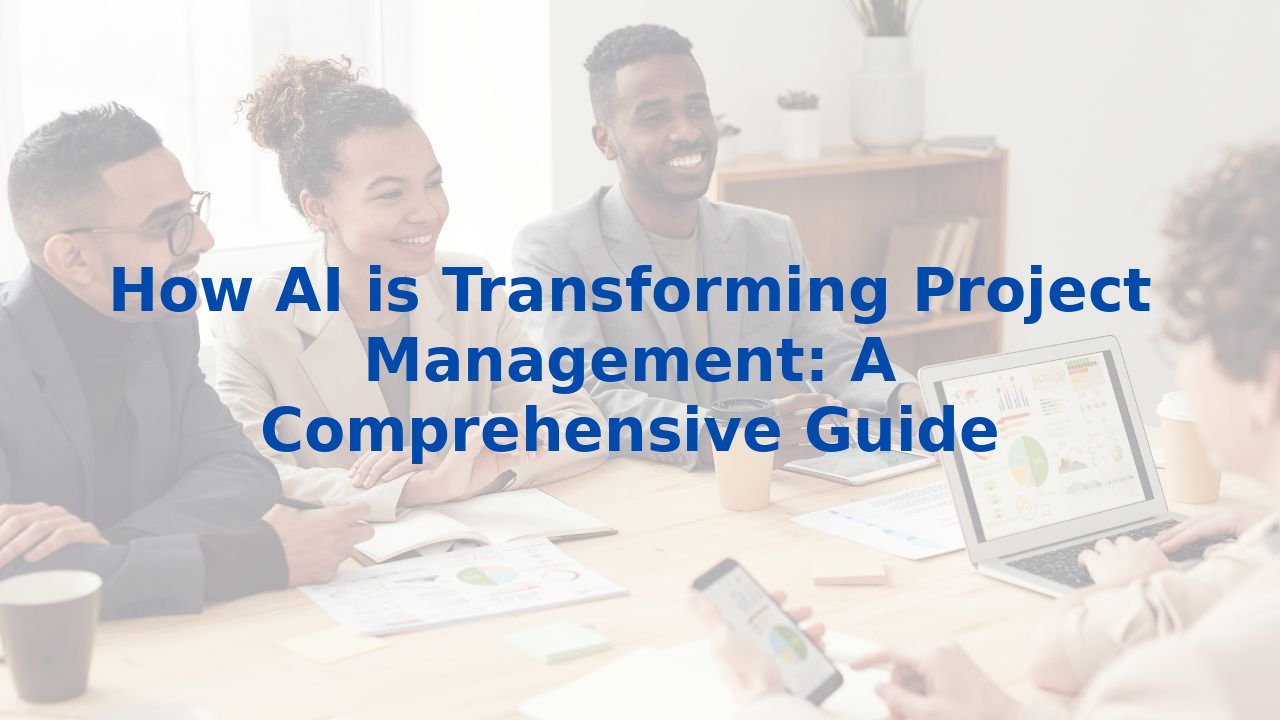How AI is Transforming Project Management: A Comprehensive Guide
How AI is Transforming Project Management: A Comprehensive Guide
In an ever-evolving business landscape, project management has always been at the forefront of ensuring that teams work cohesively towards a common goal. With the advent of Artificial Intelligence, these age-old practices are being revitalized in ways that once seemed unimaginable. AI is not merely a tool; it’s a catalyst for change, enhancing efficiency, communication, and decision-making across organizations.
Understanding Traditional Project Management Processes
Project management typically involves defining project goals, planning, execution, monitoring, and closure. Each of these stages relies heavily on collaboration, data management, and timely communication. However, inefficiencies often arise due to manual processes, lack of clarity, or miscommunication. The result? Delays, overspending, and frustrated teams.
But what if we could streamline these processes? Enter AI—transforming the way we manage projects and pushing the limits of what we thought possible.
The Role of AI in Enhancing Project Management
AI brings several capabilities that can significantly enhance each stage of project management:
“Data is the new oil, and AI is the refinery. It’s time to leverage its potential.”
1. Improved Planning and Resource Allocation
With AI-driven analytics, project managers can leverage vast amounts of historical data to forecast needs, allocate resources efficiently, and even anticipate potential risks. AI can analyze project variables and offer insights that lead to more informed decisions. This ensures that the right people and resources are in place at the right time.
2. Predictive Analytics and Reporting
One of the most powerful aspects of AI is its ability to predict future trends. By analyzing project performance and historical outcomes, AI can provide scenarios that allow project managers to make proactive adjustments. This predictive capability leads to better reporting and the agility to respond to changes swiftly, thereby improving overall project outcomes.
3. Enhanced Communication
Effective communication is paramount in project management. AI tools can streamline communication, ensuring that relevant information is delivered to team members in real-time. Chatbots and virtual assistants are examples of AI applications that can answer questions, set reminders, and provide updates 24/7, keeping everyone in sync.
4. Automation of Mundane Tasks
Many project management tasks are repetitive and can be automated. From scheduling meetings to sending reminders and tracking progress, AI can handle these mundane operations, freeing up valuable human resources to focus on strategic aspects of projects. This improved efficiency not only saves time but also enhances productivity across the team.
Benefits of AI for Organizational Efficiency
Integrating AI into project management leads to tangible benefits for organizations:
- Increased Productivity: By automating routine tasks and optimizing resource allocation, employees can focus on what truly matters—creative problem-solving and innovation.
- Higher Quality Outcomes: With AI enhancing decision-making, the risk of human error decreases, which in turn leads to better project deliverables.
- Cost Savings: Streamlined processes translate into financial savings, ensuring projects stay within budget and deliver maximum value.
- Greater Collaboration: AI fosters a more connected work environment, bridging gaps between teams and enabling seamless collaboration.
The Imperative of Employee Training in AI
As AI continues to infiltrate project management, training becomes an essential element for success. Investing in AI training for employees can elevate their proficiency, allowing teams to leverage AI tools effectively. Tailored training solutions ensure that employees feel confident in integrating AI into their daily workflows.
Organizations can consider offering AI training programs that cater to their specific needs, enhancing skills across all levels of staff, from entry-level to executives. By upskilling employees for an AI-driven landscape, companies can maintain a competitive edge and foster a culture of continuous improvement.
Conclusion
The marriage of AI and project management is more than just a trend; it is a revolution that promises to redefine how we work. From planning and resource allocation to communication and automation, the benefits are profound. Embracing this change not only enhances operational efficiency but also empowers employees to excel in their roles.
As organizations look to the future, investing in training and fostering a mindset of innovation will be critical in fully harnessing the power of AI. The opportunity is here—let’s seize it.



